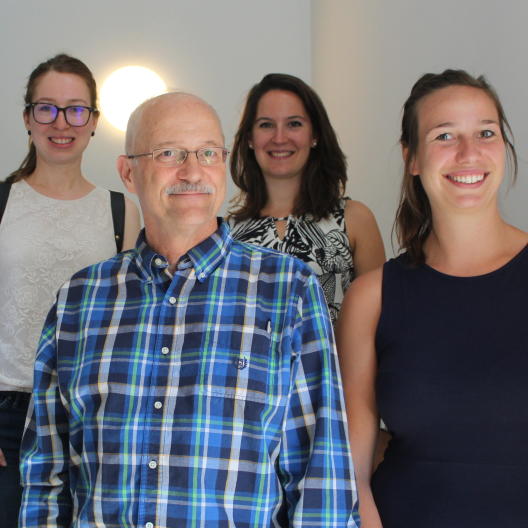Mercator Fellow Roger Mayer hält Vorträge am Kolleg
Seit dem 26. Juni ist Roger Mayer, Professor an der North Carolina State University (USA), in seiner Rolle als Mercator Fellow am Graduiertenkolleg "Vertrauen und Kommunikation in einer digitalisierten Welt" zu Gast. Am 16. Juli (Montag) wird der renommierte Vertrauensforscher gemeinsam mit seiner Kollegin Holly P. O’Rourke und seinem Kollegen Gene A. Brewer von 13 bis 14.30 Uhr im Kolleg am Domplatz zu zwei Forschungsthemen referieren. Beide Vorträge sind offen für interessierte Wissenschaftlerinnen und Wissenschaftler.
Vortrag 1:
US Police-Community Trust: The Unexplored Perspective of Police
Scott M. Mourtgos, Roger C. Mayer, Richard A. Wise, Holly P. O’Rourke
ABSTRACT:
Many studies have looked at the public’s trust in the police, but very few have examined police trust in the public. Based on Mayer, Davis, and Schoorman’s (1995) model of trust, we conducted two studies. The first study created scales measuring the antecedents of trust and assessed police trust in the public based on a survey of 990 police officers from across the United States. The second study used the trust measures developed in the first study, as well as supervisors’ evaluations and archival performance data, in a longitudinal study of the job performance of 135 police officers. We found that officers who had greater trust in the public engaged in more proactive policing and made more arrests. We discuss the implications of these findings, including what they mean for police officers and the communities they serve.
Vortrag 2:
How Religious and Nonreligious Behaviors Influence Trustworthiness: The Role of Integrity
Derek M. Ellis, Chris Blais, Stefanie B. Northover, Adam B. Cohen, Roger C. Mayer, Kimberly Wingert, Steven R. Corman, Gene A. Brewer
ABSTRACT:
Recently, costly religious behaviors have been shown to influence perceptions of trustworthiness. Surprisingly, this occurred for both ingroup and outgroup targets. As the prevailing theory is that costly religious behaviors communicate commitment to one’s religious ingroup, theories about the mechanisms by which religious behaviors influence trust need to be reexamined. We investigated potential mechanisms drawn from Mayer, Davis, & Schoorman’s (1995) model of trust in organizations: Ability, benevolence, and integrity. We also investigated the perceived sincerity of the actor’s belief, in accordance with CREDs theory. In Experiments 1 and 2 we examined whether ability, benevolence, and integrity mediated the effects of costly signals on trust for ingroup (Christian) and outgroup (Muslim) members, finding that integrity was a consistent mediator. While religious behaviors did increase perceived sincerity of belief, this did not translate into more trustworthiness (Experiment 2). In our third experiment we found that manipulating perceived integrity led to changes in perceptions of trustworthiness, more so than manipulating the sincerity of belief. In a fourth experiment we found that behaviors need not be religious to promote trust (a vegetarian who abstains from meat is trusted more than one who eats meat). These results suggest a new theoretical understanding of how religious and nonreligious behaviors influence trust, through perceptions of integrity more so than through perceptions of religious beliefs.


